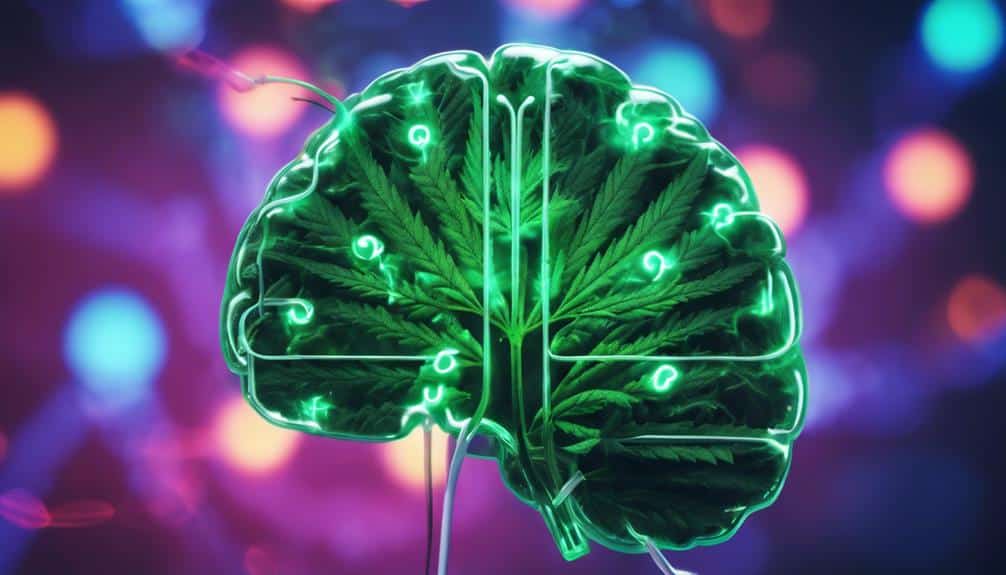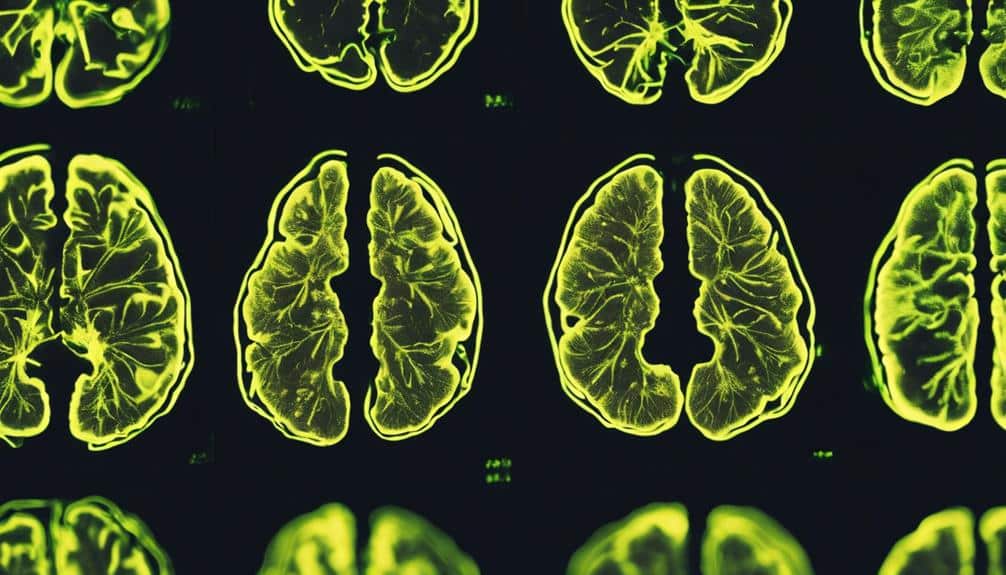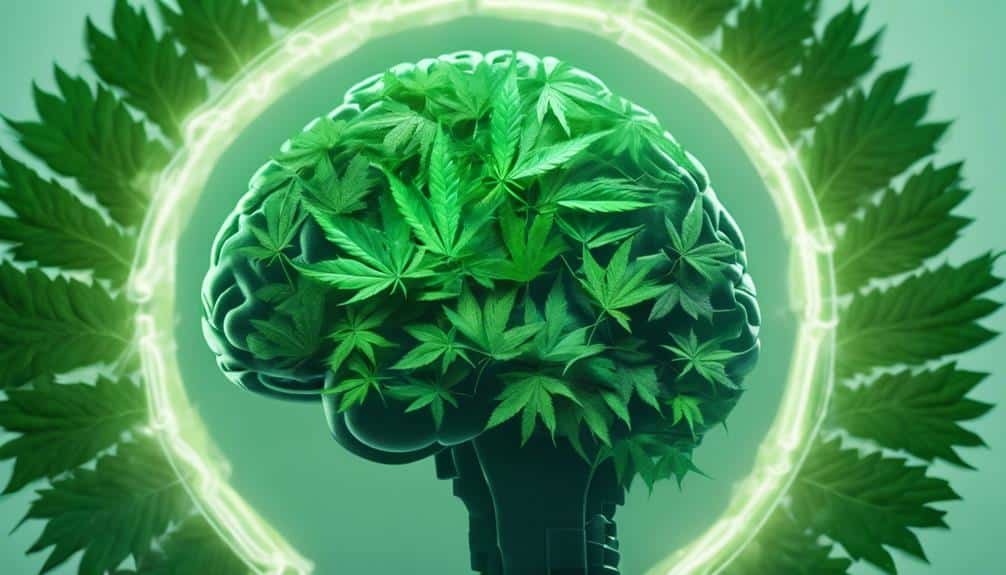Mental health disorders may find a formidable opponent in medical marijuana. You’re likely aware of the escalating advocacy for its use in physical conditions, such as chronic pain and epilepsy.
Table of Contents
However, it’s the potential impact on mental health that’s becoming increasingly captivating. The soothing qualities of cannabis could help manage conditions like anxiety, depression, and PTSD, but this approach is not without controversy.
What are the actual benefits and potential pitfalls of this unconventional treatment? Let’s delve deeper.
Understanding Medical Marijuana

In the past decade, the use of medical marijuana has surged. Hence, it’s crucial to understand what it is, how it works, and its potential benefits and drawbacks. If you’re familiar with cannabis legislation, you know that legal complexities surrounding its use vary from state to state and country to country. It’s important to respect these laws while exploring this treatment option.
But legality isn’t everything. Strain selection also plays a key role in effective use. Different strains of cannabis have diverse effects due to varying levels of THC and CBD – the primary active compounds. Some strains may be more beneficial for certain conditions than others. Therefore, you need to be discerning in your choices by ensuring that the selected strain aligns with the needs of those under your care.
Remember though; while medical marijuana holds promise, it comes with risks too. Side effects can include drowsiness, dizziness, and increased heart rate, among others. As a caregiver, it’s your responsibility to weigh these potential drawbacks against the benefits. Medical marijuana may not be the right solution for everyone, so making informed and careful decisions is crucial.
The Link Between Cannabis and Mental Health
When exploring the relationship between cannabis and mental health, it’s essential to understand the intricate dynamics at play.
- Cannabis Legislation: Note that the legal status of marijuana varies across countries and states. This legislation affects not only its availability but also ongoing research into its therapeutic effects.
- Therapeutic Effects: The active compounds in cannabis, cannabinoids, have shown promise in alleviating symptoms of several mental health disorders including anxiety, depression, and PTSD.
- Potential Risks: Despite its potential benefits, there are downsides too. Some studies suggest a possible link between heavy cannabis use and an increased risk of developing disorders like schizophrenia or psychosis – especially in individuals with a predisposition.
- Individual Differences: Cannabis doesn’t affect everyone in the same way. Factors such as genetic makeup, mental health history, and even the strain of cannabis used can significantly influence individual experiences.
Case Studies: Medical Marijuana Successes

In examining medical marijuana’s role in healthcare, it’s important to highlight specific cases where patients have successfully managed their mental health conditions through its therapeutic use. Patient testimonials demonstrate the therapeutic applications of medical marijuana and are an essential part of understanding its potential.
Consider a patient suffering from severe anxiety. Traditional medication didn’t provide relief, but medical marijuana did. The patient reported a significant reduction in anxiety levels, leading to an improved quality of life.
Or consider an individual living with PTSD. After trying several treatment methods with little success, the patient turned to medical marijuana. It provided a level of relief that other treatments hadn’t, allowing them to resume daily activities and maintain personal relationships.
These case studies reflect the potential of medical marijuana in mental healthcare. They show its ability to alleviate symptoms and improve patients’ lives. However, it’s important to remember that every patient’s experience is unique. Medical marijuana may not work for everyone, so consulting with health professionals to determine the best treatment approach is crucial. As we continue exploring this field, let’s keep patient wellbeing at the forefront of our efforts.
Potential Risks and Drawbacks
While acknowledging the benefits of medical marijuana, it’s equally important to consider potential risks and drawbacks associated with its use in mental healthcare.
You need to be aware of four key concerns:
- Addiction Concerns: Despite its therapeutic potential, marijuana carries a risk of dependency. Some individuals may develop a reliance on the drug leading to addiction – especially those with a history of substance abuse.
- Mental Health Risks: In some cases, marijuana use can exacerbate mental health issues by amplifying feelings of anxiety or paranoia or worsening symptoms of certain disorders like schizophrenia.
- Physical Health Risks: Long-term use can lead to physical health issues like respiratory problems, especially when smoked. There’s also evidence of potential harm to cognitive function over time.
- Legal Implications: While medical marijuana is legal in many places, it’s still prohibited in others. This can lead to legal complications including potential criminal charges or job-related consequences.
Weighing these potential risks against the benefits is crucial. Always consult with healthcare professionals before starting or changing any treatment plan. Remember, what works for one person might not work for everyone.
Future Prospects of Cannabis in Mental Healthcare

Looking ahead, it’s clear that the role of cannabis in mental healthcare is poised for significant evolution. Progressive legislative changes are breaking down barriers, allowing research to delve deeper into the therapeutic applications of cannabis for mental health.
We can anticipate a future where cannabis-based treatments are integral to mental health services. The potential for cannabis to treat conditions like anxiety, depression, and PTSD is immense. It’s being seen not just as an alternative but as a primary solution challenging traditional pharmaceutical approaches.
However, with ongoing stigmatization and legal complexities, the journey won’t be smooth sailing. The industry needs to address these issues and work towards standardization and quality control – focusing on creating safe, effective products that serve patients’ best interests.
Conclusion
Medical marijuana is undeniably reshaping mental healthcare. Its correlation with mental health, marked by numerous success stories, offers a glimmer of hope. However, potential risks can’t be overlooked. As we stand on the brink of this new era, we must approach it with cautious optimism – recognizing the transformative potential of cannabis while remaining vigilant about potential pitfalls. The future of mental healthcare could very well be intertwined with this leafy green plant.
I’d like to personally invite you to visit us at Cannabis Docs of Delaware to learn more about this fascinating evolution in mental healthcare. We’re more than happy to answer any questions you might have and guide you through the benefits and potential risks of medical marijuana. Friendly, knowledgeable, and committed – we’re here to help. So why not give us a call or drop by? We look forward to sharing our expertise and welcoming you into the exciting world of medical marijuana.

